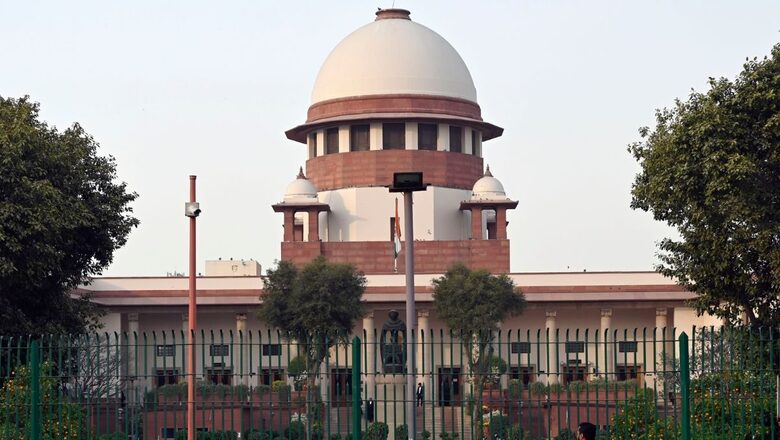
views
A review petition was filed in the Supreme Court against its verdict in the same-sex marriage matter.
The review plea, filed by Udit Sood, said the “majority judgment” is facially erroneous because it finds that the respondents are violating the petitioners’ fundamental rights through discrimination, and yet fails to enjoin the discrimination.
It said the “Majority Judgment” is manifestly unjust because it countenances animus-motivated depravation of the Petitioners’ fundamental rights. The plea also said the “Majority Judgment” is self-contradictory in its understanding of “marriage”.
On October 17, the Supreme Court of India said it cannot legalise same-sex marriages, with Chief Justice of India DY Chandrachud saying making such a law is the domain of parliament. The CJI-led five-judge bench heard arguments in the case between April and May this year.
Directing the Centre, states, and UTs to ensure that the queer community is not discriminated against, the CJI said queer is a natural phenomenon known for ages and is neither urban nor elitist.
The court ruling comes five years after a historic 2018 judgment when the Supreme Court scrapped a colonial-era ban on gay sex.
Same-Sex Marriage: What SC Ruled on Adoption, Special Marriage Act, Civil Union | Key Takeaways
The apex court had said it can’t compel the Parliament or the State to create a new institution of marriage.
While pronouncing the verdicts on 21 petitions seeking legal sanction for same-sex marriages, a five-judge constitution bench of the Supreme Court ruled that it is within Parliament’s ambit to change the law for validating such a union.
The top court, however, recognised equal rights for queer people and their protection, while calling for sensitisation of the general public so they don’t face discrimination.
It was a 3:2 judgment on various points, including adoption, with Justice Kohli, Bhat, and Narasimha on one side, and Justice Chandrachud and Kaul on the other.
“Whether a change in the Special Marriage Act (SMA) is needed is for the parliament to ascertain and the court must be careful to enter into the legislative domain,” Chief Justice of India (CJI) D Y Chandrachud further said.
While passing four separate verdicts, the apex court was unanimous in holding that there is “no unqualified right” to marriage, and same-sex couples can’t claim it as a fundamental right under the Constitution.
















Comments
0 comment